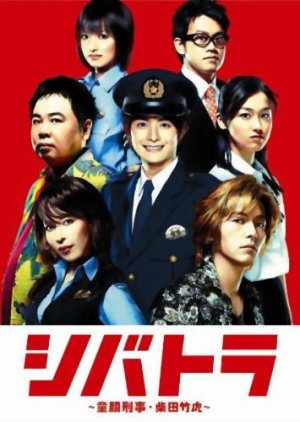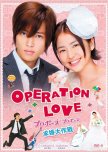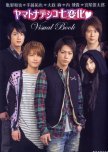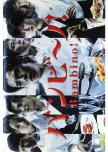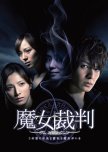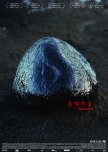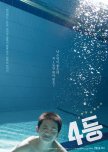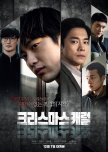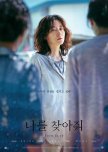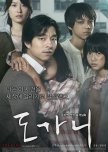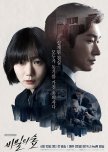
I only thought of watching this because of Koike Teppei,but after the first episode I was completely hooked, not just because of him, but because of the whole plot and the cast. I will definitely re-watch this again, and I highly recommend this to any one who love action, police stories and Koike Teppei.
All in all, Awesome!!
Was this review helpful to you?

‘ Shibatora’; The Repetitive Drama That Enforces Every Trope…
Based on the manga series by Yuuma Ando, ‘ Shibatora’ ( alternatively known as ‘ Babyfaced Detective Taketora Shibata’ or ‘ シバトラ’) was adapted to the small screen by screenwriter Muto Shogo. Whilst Shogo’s screenplay was notably an amalgamation of angst-ridden topics and lighthearted comedy , the series did notably suffer greatly under the weight of pacing, character writing as well as plot-motivation also.
The series focused mainly upon main lead and recently promoted police detective Taketora Shibata ( Teppei Koike ). Forever being mistaken as a teenager due to his youthful appearance, Shibata finds himself being sent illicitly undercover by his new boss Sakura Chiba ( Miki Maya ) in order to resolve juvenile crime cases. However, Shibata hides a secret from his peers. Taketora Shibata possesses the ability to see the “ grim reaper’s hands”; an ominous sign surrounding individuals who are going to die within 24 hours. Alongside the help of his old friend and owner of alternative clothing store “SABBATH SABBATH” Fujiki Kojiro ( Fukiji Naohito), Kojiro’s employee Hakuto Shinsuke ( Tsukaji Muga) and previous case victim Hosho Mizuki ( Ohgo Suzuka), Taketora becomes determined to help save the young people involved in various crimes.
One of the most notable things to comment about the screenplay for ‘ Shibatora’ came through the parallel differences between the adapted TV series and ‘ Shibatora’’s original source material.
Of course as a standalone production in its own right, it is expected that ‘ Shibatora’ will take some different creative differences than the original manga. Indeed, Muto Shogo added particular focus on the darker subject matters of the series. However whilst Shogo did place some “edgier” undertones as the series progressed and the severity of crimes worsened, the impact and value of these events were somewhat inanely delivered also.
For those familiar with Teppei Koike’s works ( ‘ Gokusen 2’, ‘ Love Com’, ‘ Dragon Sakura’ and ‘ The Team Medical Dragon’ in particular), Koike’s zestful and sincere charm as main lead Taketora Shibata was well-suited and fairly convincing throughout the series. However, Koike’s costars notably brought forward a mixed-bag of acting talents. Whilst some of the supporting cast offering decent enough performances, other costars’ lack of acting experience and inconsistent line deliverances could be extremely questionable for viewers at the best of times .
Admittedly whilst the mixed-range of acting talents is a partial problem with the series’ untactful narrative, the screenwriting was one of ‘Shibatora’’s greatest pitfalls. Screenwriter Muto Shogo attempted to introduce a wide range of reoccurring characters and events from the original manga into the drama’s short timeframe. Whilst Shogo admittedly adapted the storyline in necessary parts such as combining the roles and backstories of certain characters in order to expedite plot points, this did notably give root to another problem; the storyline could often feel rushed.
The pacing of the series did present a double-edged sword; ideal for helping to present a fast-paced narrative rather than tediously dragging out events, but rarely presenting golden-opportunities to explore characters or solve weaker plot problems also.
For example, there’s the poorly-explained “ fantasy” elements surrounding Taketora’s supernatural ability throughout the series. Whilst admittedly this is a pitfall carried through from the original manga, Shogo seemed to particularly present this element of the series with lacking focus or depth; necessary as a quick plot asset, but rarely offering opportunities to explore Taketora’s backstory with more tact.
In fact Shogo’s tackling of the main lead’s backstory in the series was often poorly induced throughout the events of the storyline. Initially brought up as a seeming quintessential plot point, Taketora’s backstory is quickly passed off in passing dialogue by Kojiro ( an out of character writing decision also) instead. Perhaps if the series had foreshadowed or built upon the importance of Taketora’s backstory ( especially with all regards to the future events and the final “ antagonist”), then perhaps the ending of ‘ Shibatora’ could’ve been less anticlimactic and certainly fleshed-out with more depth.
Indeed this seemed to be reoccurring problem with ‘ Shibatora’. Even seemingly intriguing main characters such as Sakura Chiba’s personal vendetta for becoming involved in juvenile crime cases ( only mentioned several times), or the backstory and feelings of the supporting cast were rarely discussed or brought up in the storyline’s narrative also.
Instead the series’ eleven episodes notably became trapped in the pitfall of similar storyline formats. It became evident that each episode soon followed a pattern generic exposition, the possible case coming to light , a sudden revelation,the climax and then a final resolution. Whilst it is not of the question for a series to follow this basic structure when revolving around shared storylines, the lacking variation and ability to diverge away from previous episodes presented a somewhat repetitive and slightly tiresome formula for viewers.
Even in retrospect for a late 2000s drama, the cinematography under the directing reigns of Ishikawa Junichi and Iwata Kazuyuki was admittedly slightly worse for wear in parts . The somewhat sloppy cuts, editing and fuzzy long distance shots could sometimes unintentionally divert the attention of viewers away from necessary scenes and storyline. Nevertheless whilst the directors did sometimes struggle with delivering an impact throughout their field of vision behind the camera, they were able to present some brilliant moments of scenes and choreography also.
The OST of ‘ Shibatora’ arguably remained one of the greatest virtues of the drama. Admittedly, there were certainly tracks in the series which lacked a greater impact than others, but, the chosen instrumentals did often help to convey the emotional tones and themes of the storyline when plot could sometimes be greatly absent.
Whilst ‘ Shinatora’ admittedly covered darker subject areas and presented some adrenal-infused plot moments, the storyline was often weakened greatly by rushed pacing, questionable acting, lacking character depth as well as repetitive plot points. Perhaps whilst the blasting scores could often make up for storyline flukes by exploring the emotions of the characters, the lacking scope of character depth and backstory rarely allowed this to become a symbiotic asset. Perhaps for those looking for a quick and easy binge-watch then ‘ Shibatora’ is an ideal viewing experience. However for those wishing to indulge in an avant-garde, well-written and memorable detective and crime drama , then ‘ Shibatora’ is certainly not it.
Was this review helpful to you?

The actors/actresses in this show could also lead the viewers to other shoes like "Kamen Rider","Mikeneko Holmes no Suiri", "the Quiz Show 2", "Kaito Yamaneko"... just to name a few!!
Was this review helpful to you?

Story:
First of all, the story is the main reason I binge watched this and was so hooked on the drama. I liked the idea from the very beginning. The first episode completely took me by surprise, as it made it seem the plot was going to be predictable and I was okay with it, but it surprised me with a plot twist. I also loved the unexpected dark side of the drama, mixed in with the comedy to lighten the mood. Then, they introduced the unexpected depth to the characters, and started to show how everyone has a reason for being the way they are, while hinting slowly at their past and then explaining it slowly a few episodes later. It made me excited to watch and I couldn't stop. At the beginning, I was also into Shibata and his 'at all times kind-but naive' persona, as well as his relationship with the rest of the team. The friendship was a big part of the story and it made me smile like an idiot for a lot of the time. At the beginning, I also got hooked onto his speeches and views. However, as much as I was invested, I clearly couldn't ignore the gaping annoyances which I believe others would have a problem with too. At first, the plot twist was a shock, but then the drama started relying on that way too much, which actually made it more predictable with the fact that the most obvious person is never the culprit. Some other things that I liked at the beginning, also started to become annoying, such as Shibata's naive views and how he was always somehow able to change other criminals and the way they think just by giving them a speech. This happened in every episode and he was somehow able to turn everyone into a good person just by sympathizing a bit? That was so unrealistic, it made me annoyed and it also showed a predictability of the episode: go undercover, find a suspect, figure out it's someone completely different, give them a speech, they feel bad for their actions and become friends with Shibata. There were a lot of repeated scenes, some of which I liked as they built character and had a purpose, such as the funny gags that came out of it, but the idealism started to feel way too annoying later on. I liked the aspect of changing some people who later become allies, but when it's done in every episode, character development doesn't mean much. The ending of the drama also disappointed me, considering how easy it looked to wrap up nicely, without any plot holes.
Acting:
The story kept me watching, but there is also the acting, which is the complete opposite and almost made me consider quitting. Normally, I can overlook problems with acting in the favor of the story. However, here, the acting was way too over the top for me to enjoy. The best way to describe it is: 'the actors are trying way too hard to be anime characters'. Their exaggerated facial expressions and gestures when screaming, crying, being surprised or laughing were too cringy and out there for me to overlook and not laugh at. Because of that, some moments that were supposed to be sad, shocking, or disturbing, just turned out to be something I couldn't even feel or focus on, as I was only thinking about how much I want to skip some scenes. This is the thing I first noticed about their acting. This could also be the result of poor directing, as the effect related to this made it even more unwatchable. For example, in one episode where a guy was supposed to be crying, I could only hear him make crying noises with a scrunched up facial expression, but there were no tears on his face, which only made the scene seem ridiculous, making me unable to empathize. Therefore, I would say the worst thing about this drama was the acting, which could look better with less crazy effects, and if the actors toned it down a notch. Just like a lot of the story, it was way too unrealistic.
Music:
The reason I rated the music so highly was because I normally don't pay attention to stuff like that in drama and I have to think very hard about what the music was like. However, in this drama, the music was hard not to notice. This is because it did a lot to create the atmosphere and the repeated soundtracks gave me a feel for what was coming soon and how I should feel, which is what well-placed music in dramas should do. There was a certain type of music, which if it came on, I knew it was going to be a silly and comedy-packed scene, dark scene, sad scene, or a shocking scene with a sudden plot twist. Where the acting failed, the music was able to somewhat give me the right feels, which I had to appreciate.
Rewatch Value:
Would I rewatch the drama even with it's many mistakes? Shockingly, yes! This is because it's not too heavy to rewatch like some dramas that still left a scar on me, due to the well-mixed in comedy, teamwork, friendship, story, and many repeated gags that I would like to go back to. There were also some well done characters that I would love to observe more and specific moments to look at.
Overall:
Considering all these factors, this drama is nothing that would take up a favorite place of mine. However, even with its mistakes I was able to fall in love with many characters in this, which made me smile everytime they came on screen. Thinking about it and the story, with all my complaints, I don't know what it is, but there is definitely something with this drama that made me stick with it until the end. Not just that, but for some reason, as soon as I started, I couldn't stop watching it until I finished the whole thing. This shows there is something special, as I would normally quickly dropped a drama with such awkward acting and annoying plot points quite quickly. However, being able to look through its mistakes and loving it regardless is something that will give this drama a special place in my heart.
Was this review helpful to you?

неотразимый Фудзики Наохито - слишком хорош блондином
Цукадзи Муга отличный комический актер, а Майя Мики, как всегда, сногсшибательна.
Из минусов - наивность манги (а первоисточник это она) на грани глупости, и к сожалению, иногда эту грань они переступают. И тут не знаешь как относится - то ли по серьезному воспринимать, то ли просто веселится, но сюжеты то не позволяют. В общем, я в раздрае.
Was this review helpful to you?

